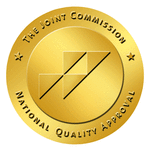Here, we explore how you can cope with addiction within the family. Take you own hero’s journey and let go of the fear that is holding you back. Fear of change. Fear of things staying the same. Fear of others. Fear of ourselves. Then, we invite your questions or comments about addiction and the familyat the end. In fact, we try to respond to all comments with a personal and prompt reply.
Moving Through Fear: A Guide To Letting Go!
Fear is a powerful motivator, but frequently it motivates us in the wrong direction, away from things that allow us to grow, keeping us from opportunity. This is especially true for people who grew up (or are growing up) in homes with alcoholism or addiction. Why? Because we have been trained to understand that the things we are afraid often come true.
The Monsters Are Real
When you are being raised with alcoholism or substance abuse in the mix, there really are monsters. You learn early on that it is best to live life in a way that keeps the monsters away. The problem is that as we grow the things that were true when we were young may not be true anymore, and living our lives based on those fears means that we are living limited by our past. To live a fully engaged life, we have to learn from the past but we also have to let go of the things that have stopped protecting us and now prohibit us from reaching our full potential; old fear has to go!
How?
5 Steps For Families In Addiction Recovery
1. Face the demon.
What are you afraid of? This is not always an obvious answer so get into your toddler mode and start asking “why”. If you are resisting doing something new, or unwilling to take on a different kind of challenge, or if your immediate reaction to something is to say “no” explore this-ask yourself why over and over until you can get to the root of what is making you uncomfortable. You don’t have to change your mind, you just want to get to a point of understanding.
2. Explain the reason for the fear.
Once you have got down to the root of the discomfort, explain it to yourself just the way you would explain it to another person if they were sitting in the room with you.
3. Argue with yourself.
Apply logic. Does it really make sense to hold onto this fear with the people and circumstances of your life today? Does it still apply? If you were told over and over that you couldn’t or shouldn’t or were bad are those things actually true today? Is there evidence to support this or is it just an old story?
4. Reject/Replace/Receive based on what you just learned.
After you looked at the fear and taken a chance to understand where it came from and whether or not it is still true make a decision about what you are going to do with this information. If it isn’t true and doesn’t fit your life anymore then Reject it. If it’s really just an old habit and there is something new that applies to your life, Replace that old fear with what is true for you today.
5. Work with the fear.
Finally, maybe the fear is still applicable to your life, maybe you have more work to do, that’s okay; allow yourself to embrace the fear, Receive it in your life and accept that it is something you have to work with. Simply by acknowledging it you may give yourself the opportunity to ask for help, ask for comfort, seek guidance and find ways to start letting it go.
It Ain’t Easy
This isn’t an easy process. Here is my own example: I get uncomfortable when I have to rely on someone else to do something, whether this is building a piece of furniture or taking out the trash. I’m afraid I’m not going to get what I want and I am not going to be taken care of. I don’t trust that the other person will do what they say, and I’m afraid they won’t like me because I asked.
Why?
Because I grew up in a house with substance abuse, family dysfunction, and addiction. The adults who raised me didn’t follow through on what they said. Then they would tell me I was a bad person for asking.
As an adult, I had to look at whether or not this was a reasonable behavior to expect from my spouse, co-worker’s or other adults. With a lot of exploration I realized it was not reasonable behavior and I could reject the fear that prevented me from trusting others, I could replace that feeling with what was true now-sadness at how I had been treated as a child and disappointment when someone doesn’t follow through, and I was able to receive a new depth in my relationships because I was no longer showing up with old fears.
Coming face to face with your fears can be terrifying; realizing that you don’t have to be controlled by that fear means that you can come out of that dark tunnel to glorious new opportunities for living your life. That’s why we are here to help get you started.
Your Questions And Comments Are Welcomed
Are you seeking family support for addiction? Please let us know how we can help. We’ll respond to you personally or help refer you to someone who can.


 RSS Feed
RSS Feed
